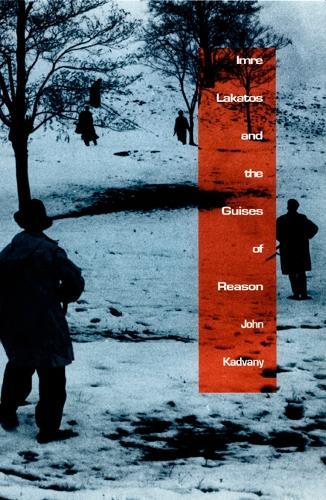Overview
The Hungarian emigre Imre Lakatos (1922-1974) earned a worldwide reputation through the influential philosophy of science debates involving Thomas Kuhn, Paul Feyerabend, and Sir Karl Popper. In ""Imre Lakatos and the Guises of Reason"" John Kadvany shows that embedded in Lakatos's English-language work is a remarkable historical philosophy rooted in his Hungarian past. Below the surface of his life as an Anglo-American philosopher of science and mathematics, Lakatos covertly introduced novel transformations of Hegelian and Marxist ideas about historiography, scepticism, criticism, and rationality. Lakatos escaped Hungary following the failed 1956 Revolution. Before then, he had been an influential Communist intellectual and was imprisoned for years by the Stalinist regime. He also wrote a lost doctoral thesis in the philosophy of science and participated in what was criminal behaviour in all but a legal sense. Kadvany argues that this intellectual and political past animates Lakatos's English-language philosophy, and that, whether intended or not, Lakatos integrated a penetrating vision of Hegelian ideas with rigorous analysis of mathematical proofs and controversial histories of science. Including new applications of Lakatos's ideas to the histories of mathematical logic and economics and providing lucid exegesis of many of Hegel's basic ideas, ""Imre Lakatos and the Guises of Reason"" is a reconstruction of ideas and episodes from the history of philosophy, science, mathematics, and modern political history.
Full Product Details
Author: John Kadvany
Publisher: Duke University Press
Imprint: Duke University Press
Dimensions:
Width: 15.20cm
, Height: 2.80cm
, Length: 23.50cm
Weight: 0.767kg
ISBN: 9780822326496
ISBN 10: 0822326493
Pages: 277
Publication Date: 09 April 2001
Audience:
Professional and scholarly
,
Professional & Vocational
Format: Paperback
Publisher's Status: Active
Availability: In Print

This item will be ordered in for you from one of our suppliers. Upon receipt, we will promptly dispatch it out to you. For in store availability, please contact us.
Reviews
I have rarely encountered a book with as many fresh and arresting ideas from so many seemingly disparate intellectual and historical contexts. With wit, verve, and concision, Kadvany combines an impressive command of the traditions of philosophy, science, mathematics, and economic theory with an impassioned and insightful mastery of the history of Hungary during the Communist era. - Martin Jay, University of California, Berkeley Not merely a uniquely insightful account of the life and work of one of this century's most original philosophers, this book provides a glimpse of a vanished intellectual world, that of Middle Europe before the catastrophes. Finding Georg Lukacs and Hegel in Lakatos does more than elucidate Lakatos's thought; it provides us with an entry to a whole different intellectual style. As interpreted by Kadvany, Lakatos functions as a sort of Rosetta Stone to that brilliant but now quite foreign intellectual culture. A brilliant tour de force. - Jerome Ravetz, author of Scientific Knowledge and Its Social Problems
""I have rarely encountered a book with as many fresh and arresting ideas from so many seemingly disparate intellectual and historical contexts. With wit, verve, and concision, Kadvany combines an impressive command of the traditions of philosophy, science, mathematics, and economic theory with an impassioned and insightful mastery of the history of Hungary during the Communist era.""- Martin Jay, University of California, Berkeley ""Not merely a uniquely insightful account of the life and work of one of this century's most original philosophers, this book provides a glimpse of a vanished intellectual world, that of Middle Europe before the catastrophes. Finding Georg Lukacs and Hegel in Lakatos does more than elucidate Lakatos's thought; it provides us with an entry to a whole different intellectual style. As interpreted by Kadvany, Lakatos functions as a sort of Rosetta Stone to that brilliant but now quite foreign intellectual culture. A brilliant tour de force.""- Jerome Ravetz, author of Scientific Knowledge and Its Social Problems
Author Information
John Kadvany is a Principal at the mangement consulting firm Policy and Decision Science. He has published essays on Lakatos, the philosophy of mathematics, risk, and environmental policy.



